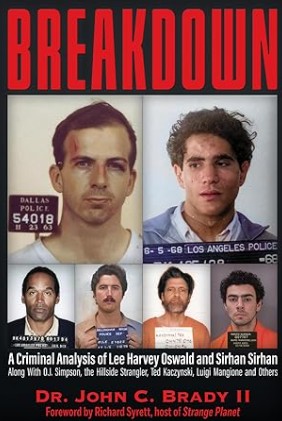Feels So Swiftie: Luigi Mangione Listening to Taylor Swift’s ‘Cardigan’ in Prison
Most people may not know what makes Luigi Mangione tick but we’re starting to learn why he Feels so Good and it’s not because he’s listening to Chuck Mangione; it’s Taylor Swift songs. In particular, Mangione has been walking laps while listening to “Cardigan,” that is until another inmate would have none of it. Mangione has earned the nickname “Ambassador” as an inmate and making himself known as a ‘Swiftie’ is quite an ambassadorial move with the pop star’s fans.
Nationally recognized forensic psychologist Dr. John Brady says this actually a stroke of brilliance for the accused murderer. “The Ambassador” inside the Metropolitan Detention Center in Brooklyn has been engendering goodwill with other inmates. Now, he’s doing the same with Taylor Swift fans, simply by making it known he’s listening to the same music.
Recent reporting describes Mangione as a model inmate who has taken on an informal leadership role, helping arrivals learn the ropes of prison life—everything from how to use the phones, get meals, request medical care, and avoid disciplinary issues.
He is also said to be tutoring fellow inmates in reading, writing, and basic arithmetic. Guards reportedly find him polite and compliant. Inmates are said to see him as unusually composed, articulate, and steady.
Psychological DNA: A Cold Case Analysis of Who Killed Robert F. Kennedy
Order Brady’s new Book Breakdown: A Criminal Analysis of Lee Harvey Oswald and Sirhan Siran
This is all being held up as evidence of Mangione’s good character—an image that could easily be leveraged in court to argue for a reduced sentence.
But Brady warns that this version of Mangione is dangerously incomplete.
Mangione is highly intelligent and socially perceptive. Those traits do not automatically signify moral rehabilitation. They can just as easily signify the capacity to influence, shape perceptions, and manipulate. The same strategic mind now teaching grammar and offering guidance is the mind that once constructed a belief system in which killing became righteous. The concern is not that Mangione helps others navigate prison life. The concern is what else he may be teaching alongside the arithmetic and etiquette.
Prisons are highly influence-sensitive environments. Inmates searching for identity, connection, or meaning are deeply susceptible to charismatic figures who present themselves as calm, wise, and principled. If Mangione’s worldview—the one that justified murder—remains intact, then “The Ambassador” persona does not represent healing. It represents recruitment.
Brady stresses that redemption cannot simply be assumed because someone behaves well under controlled conditions. It must be demonstrated through deep reckoning with the ideology that led to violence—not masked by sociability and academic tutoring.
If the public accepts the “Ambassador” narrative at face value, we risk mistaking performance for transformation, and intelligence for virtue.
The stakes are not only Mangione’s sentence, but the minds of the men he is influencing right now.
Relevant Article(s):
Why Inmates Are Calling Luigi Mangione the ‘Ambassador’ at His Brooklyn Jail (Exclusive)
Which Taylor Swift Song Did Luigi Mangione Listen to in Jail?
Pre-Order Dr. Brady’s New Book
OPTIONAL Q&A
- How did Luigi Mangione earn the nickname “The Ambassador” inside MDC?
- What role is he playing in helping new inmates adjust to the prison environment?
- Is Mangione’s tutoring of inmates evidence of rehabilitation, or is it a calculated strategy to influence perception?
- How does Mangione’s intelligence factor into his ability to shape, guide, or manipulate others in a confined setting?
- Are prison officials or outside advocates positioning this behavior as grounds for a reduced sentence?
- What safeguards exist to prevent charismatic inmates from spreading the same ideology or belief system that led to their original crimes?
- Does Mangione’s demeanor in custody reflect genuine remorse, or is it consistent with a rebranding effort designed to improve his legal standing?
- How should the justice system distinguish between true personal transformation and performance-driven behavior intended to shorten a sentence?
Chuck Mangione – Feels So Good (Nana’s Journey Into Song, March 8th, 1979)
ABOUT DR. JOHN BRADY…
Dr. John Brady is a forensic psychologist who for 25 years has spent hours analyzing why individuals commit heinous crimes, providing testimony in numerous criminal cases, and writing six books taken directly from his professional clinical work and court records.
Having worked with some of the nation’s top defense attorneys, prosecutors, private investigators, judges and even perpetrators themselves, Dr. Brady holds that powerbrokers in some of the most prosperous communities often work to hide the evil lurking within some of the biggest work hubs, endangering the public by withholding information.
Dr. Brady, who has written about why wealthy women shoplift to why individuals commit horrific mass-murders, can explain the step-by-step journey taken in the perpetrators’ unconscious journey into darkness.
“It is possible to learn to identify the hidden reasons for crime,” said Dr. Brady, “to understand what leads an individual to the breaking point.”
Whether such behaviors can be attributed to depression, to over-medication with anti-psychotic drugs, or to disorders such as dissociative identity disorder, Dr. Brady can discuss why the criminal is often caught in their own trap.
Books by Dr. Brady include:
PSYCHOLOGICAL DNA: A Cold Case Analysis of Who Killed Robert F. Kennedy
Men of steal: A brief look at the psychology of Celebrity Theft
Why Rich Women Shoplift
Klepto-Bismo: Big Pharma, Shoplifting and Psychiatric Deception
Caught in a Trap
Treat Me: Help for Behavioral Addictions
To schedule an interview, contact Bookings@Specialguests.com or call / text 512-966-0983


